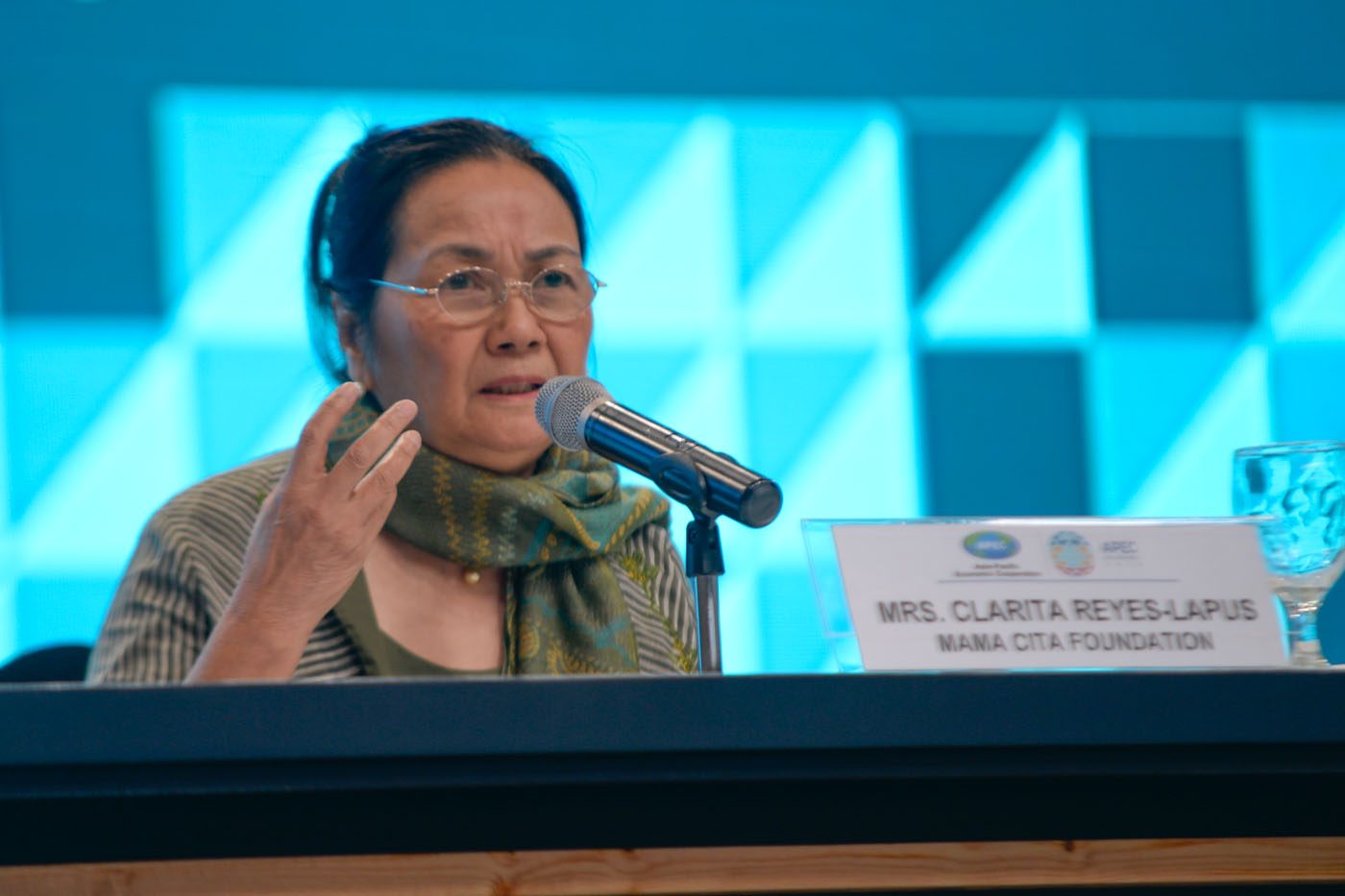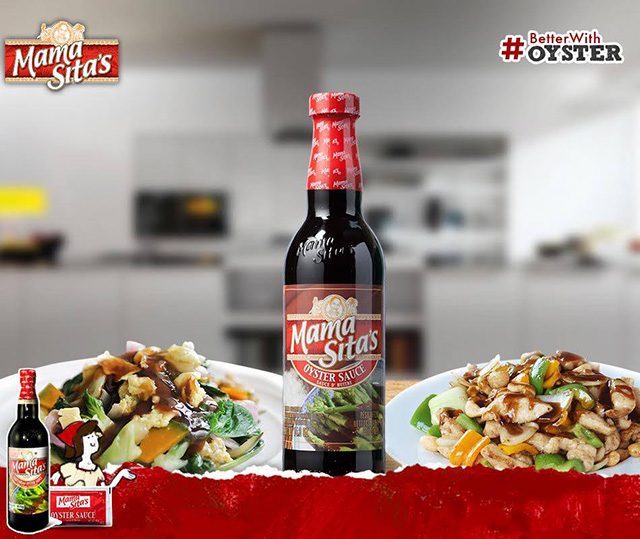SUMMARY
This is AI generated summarization, which may have errors. For context, always refer to the full article.

MANILA, Philippines – While its oyster sauce is its bestselling product in the country, still it is a challenge to introduce this product to a larger market, like the Association of Southeast Asian Nations (ASEAN), said Clara Reyes-Lapus, president of Mama Sita – a homegrown brand of products that include oyster sauce, marinades, vinegar, tropical fruit syrups, jams, pastes, sauces, porridge kits, and geli-coolers.
“We’re the number one oyster sauce brand in the Philippines. But in the world, it’s China. Our oyster sauce is better. South Korea is also very aggressive. They’re promoting their sea salt in Peru and that sells higher than Peruvian sea salt,” Lapus said, though sales figures for their products are not readily available.
And while the European market is declining, the ASEAN market is rising. “But we’re strangers to them. They also find it hard to import from us. Yet, we have to do it, we have to nurture ASEAN even if we’re strangers to each other,” Lapus said in an interview with Rappler on the sidelines of the Asia-Pacific Economic Cooperation (APEC) launching of the APEC trade repository on Sunday, November 15. (READ: Why APEC trade repository will benefit small businesses)
Even way back in 1986, Lapus was already trying to “agitate” other ASEAN markets like Singapore on US’ rules on non-tariff barriers. “I’m told, ‘how come I don’t see Filipino products here (in Singapore)? We’re just not used to selling to our ASEAN neighbors,” Lapus said.
Through Mama Sita’s Marigold Manufacturing Foundation, the Filipino brand which started producing lechon (roasted pig) sauce, has managed to enjoy strong domestic demand.
Clamor for its products overseas, like those in Singapore, Japan, Hong Kong, Australia, Middle East, Canada, Europe, and Pakistan come mainly from demand from Filipinos working and living in these markets.

Going through the eye of a needle
Lapus, the daughter of Teresita “Mama Sita” Reyes (of the Aristocrat Filipino restaurant) has a wealth of stories to share as to why Filipino products are not on a par with other ASEAN brands.
“Once, I had a cooking demo in Brunei where I used our Mama Sita’s sinigang (sour soup) mix. Then, there was a passenger from the customs department of Brunei. We sat beside each other on our way home from Brunei to Manila. I told him, ‘I see Danish products in your groceries. How come I don’t see our products in your country?’ Then he told me, ‘is it our fault?’ It means we lack the selling effort,” she lamented.
Lapus also admitted they are still having a hard time penetrating ASEAN markets, particularly China.
“We’re going through the eye of a needle. They’re afraid to spend that much to prove that our products are safe.”
The company also lost 3 months worth of income due to last year’s port congestion. They also have to deal with high transport costs and volatile exchange rates.
![NATIONAL EFFORT. "We should help each other. Let's be proud of our food [products]. It all boils down to national effort for us to be proud (of our products)," Lapus says. Photo by Alecs Ongcal/Rappler](https://www.rappler.com/tachyon/r3-assets/FC7CDCF993614B578EFC71E39664A787/img/D838D2CB163E43908EE1EF5B486F319B/APEC-Trade-Repository-20151115-006.jpg)
Remaining hopeful
With the upcoming ASEAN integration, which aims to create a single market and production base, Lapus is hopeful that doing business with fellow ASEAN countries would be easier.
“We’re hopeful. At least we’re going to see why they’re so scared to import from us. While us, we’re so free to import from them. Have you seen Indomie (instant fried noodles from Indonesia)? It’s everywhere here. But us, we can’t really penetrate their markets. We just have to keep on insisting,” Lapus said.
Despite the difficulty in penetrating the ASEAN market, Mama Sita has a sound procurement system for its raw materials, like purchasing bottles from Indonesia and Malaysia.
The company also noted that ASEAN countries offer cheaper raw materials or ingredients compared to other markets in the world, and tariffs for ASEAN-made products have steadily decreased, further lowering costs.
“ASEAN is close and their tastes are closer to ours. We just have to introduce to them our products and teach them to appreciate it,” Simon Rodrigo Pascual, Mama Sita’s export sales manager noted in Business Beyond Borders, an industry publication published by the Department of Trade and Industry (DTI).
“We should help each other. Let’s be proud of our food [products]. It all boils down to national effort for us to be proud (of our products),” Lapus said. – Rappler.com
Add a comment
How does this make you feel?
There are no comments yet. Add your comment to start the conversation.